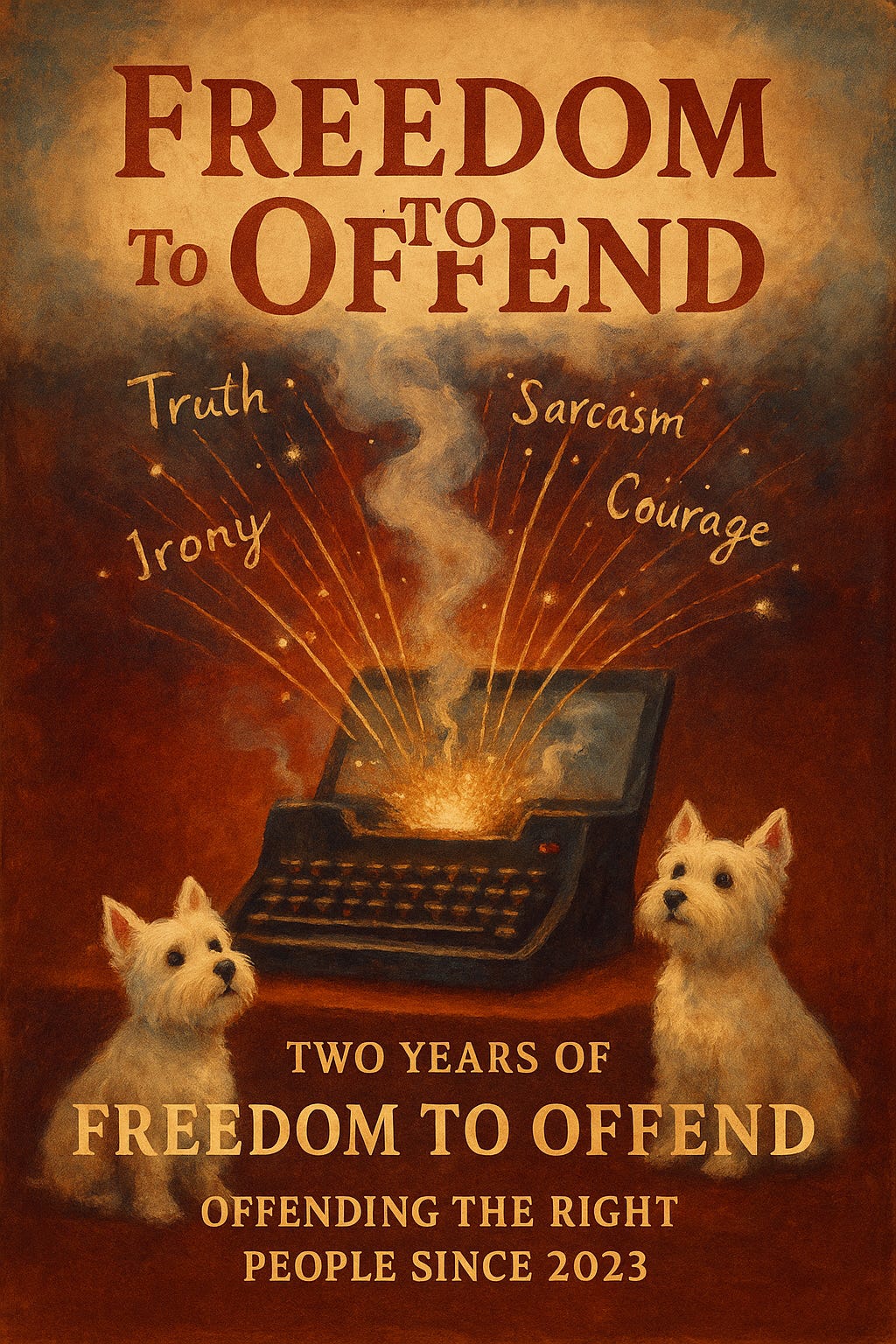Two Years of Freedom To Offend and Still Offending the Right Bastards
Freedom to Offend Turns Two
Two years.
Two years of offending the correct people, surviving the wrong ones, and gathering a rag-tag congregation of readers who still believe wit, truth, and freedom belong in the same bloody sentence.
Let’s begin with a toast — though not the kind served with cucumber sandwiches.
To my paid subscribers, that noble aristocracy of rebellion: you don’t b…




